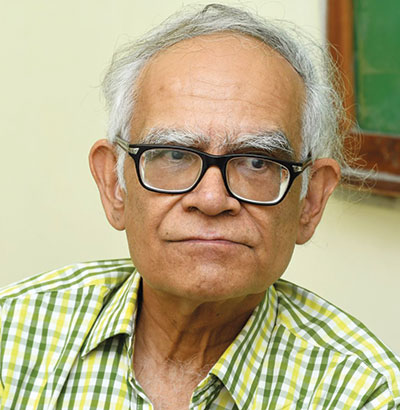

Two of my former students have asked for my opinion and advice. Both are teachers. I recall them as good students of education, especially of the peace education course they took with me as B.Ed students. The objective of the course was building capacity to reflect on contemporary issues, conflicts and controversies from a peace perspective. It is also designed to build personal capacities for introspection, mediation and persuasion. The two students who have written to me chose school teaching as their career. I say this to distinguish them from the majority who became teachers because they can’t get any other jobs.
Both these teachers are finding it tough to cope with the ethos in which they work every day. One complains that the students at her school are harsh, hurtful, disrespectful and anarchic. These adjectives jar with my memory of what is one of the better schools of old Delhi. It is a private school for girls, and that too makes adjectives like harsh and hurtful rather difficult to believe.
Why my former student now feels driven to the limits of her capacity, is because she feels the school’s management is blind to ground realities. The principal has asked her to design some activities for inculcating peace on campus because she is aware of my student’s training in peace education. However, the principal seems unaware of the extent to which students’ rebellious behaviour has become unmanageable and what teachers are facing on a daily basis. That’s why my former student wants to resign and give up her dream of pursuing a career in education.
The other student teaches in a government school. He is disturbed by the aggression and violence that boys direct towards teachers. Although he hasn’t faced violent behaviour thus far, he is unhappy that aggression and anger is pervasive among students and several incidents have occurred where students harassed and harmed their teachers. This former student has asked me whether teachers can be blamed for not adjusting to the new generation and the ethos in which it lives or whether this disrespectful behaviour is due to an inter-generational gap. He wants an answer.
Of course there is a generation gap, but it’s not easy to define or describe, let alone cope with. Children are growing up in a country that seems alien to most older people. Even a 40-year-old may find a 14-year-old too far removed from the borders of comprehensibility. For a 50-plus teacher or principal, the young sometimes feel like visitors from another planet. Although most teachers and academics are willing to learn to bridge the technology gap that divides the old and young, a far greater role in widening the gap between children and adults — including parents — is played by the new political culture.
This may startle many readers who perceive politics as something unrelated to their everyday domestic family lives. Yet, the fact is that politics now pervades every nook and corner of life. This is partly because every aspect of collective life — including work, faith and culture — has been co-opted by political processes through which power is acquired. And omnipresent politics has become increasingly aggressive and brazen.
The new political culture pervades the media, including social media. Indeed, politicians use the media to intensify their reach and influence while media channels and publications use politicians to gain an edge over their rivals. The climate created by this complementarity between an aggressive political culture and the media infuses young minds from early childhood. Children absorb competitive aggression and unconsciously express it in their daily behaviour. Teachers usually don’t know what they are dealing with or how to engage with it. Yet the question remains: If teachers understood the roots of aggression in their students’ behaviour, would they be in a better position to engage with it?
My answer is yes. Teachers able to relate to children in a wider social context are better equipped to deal with the difficulties of teaching-learning in latter-day conditions than the teachers who are only concerned about their subjects. No matter what the subject is, good teaching in this new era requires far greater emotional bonding with the young than it did in yesteryears. Indeed, two or three decades ago, teachers could focus on their area of specialisation and not worry about the finer feelings of their students.
Today, the young are coming of age in a volatile world in which it is glamorous to hunt for power and browbeat others. No general programme with a humanist agenda can address this peculiar harshness that contemporary children encounter day in and out.
Also read: World Mental Health Day: Impact of the pandemic on teachers